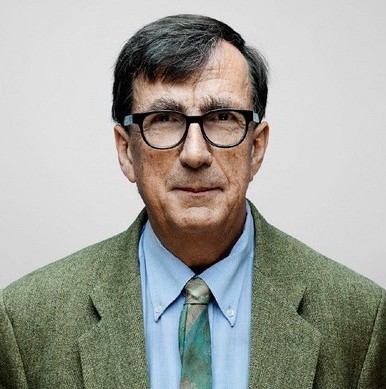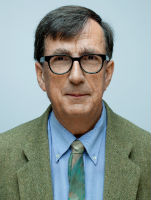Professor Bruno Latour is one of the most respected scholars in the social sciences today. This February, he came to Edinburgh University to deliver the annual Gifford Lecture Series, established in 1888 to ‘promote and diffuse the study of Natural Theology in the widest sense of the term” – an opportunity we felt we could not miss. Previous presenters have included such luminaries as William James, Wilfred Cantwell Smith and E. B. Tylor. So how does an anthropologist of science come to be giving the Gifford Lectures?
In this first part, Latour and David Robertson discuss the broader relevance of his work for Religious Studies. They discuss actor-network theory, of which Latour was instrumental in developing. This includes some discussion of phenomenology and religious “essence”. Discussion then moves to Latour’s forthcoming work, Rejoicing: or the Torments of Religious Speech (Polity 2013), a more personal work which concerns not “religion” or “religions” but the adverb “religiously”. What does it mean to talk religiously, and is it still even possible? It is at the same time a fierce attack on religions, but a passionate defence of religious speech.
Podcast: Play in new window | Download | Embed
Subscribe: RSS
You can also download this interview, and subscribe to receive our weekly podcast, on iTunes. And if you enjoyed it, please take a moment to rate us, or use our Amazon.co.uk link to support us when buying your important books etc.
Videos and abstracts of Bruno Latour’s complete Gifford Lecture series can be viewed on the University of Edinburgh’s page.
Bruno Latour is Professor at Sciences Po Paris and has also been Professor at the Centre de Sociologie de l’Innovation at the Ecole Nationale Supérieure des Mines in Paris and visiting Professor at University of California (San Diego), at the London School of Economics and Harvard University. After field studies in Africa and California he specialized in the analysis of scientists and engineers at work. In addition to work in philosophy, history, sociology and anthropology of science, he has collaborated on many studies in science policy and research management, producing significant works such as Laboratory Life: The Construction of Scientific Facts and most recently Reassembling the Social: An Introduction to Actor-Network-Theory (Clarendon Lectures in Management Studies). He has also made a valuable contribution to the political philosophy of the environment with the book Politics of Nature: How to Bring the Sciences into Democracy, a theme which the Gifford Lectures continue.









